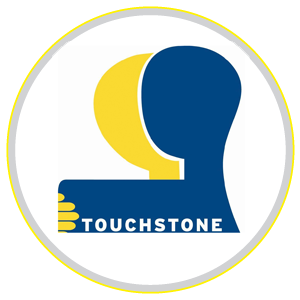International Women’s Day is upon us and it is inevitable that open dialogue will ensue worldwide, focussing on many crucial topics such as ‘the glass ceiling’, gender pay inequality and the perpetuation of unhealthy female stereotypes. The truth is, social inequality is one of the main issues facing gender balance and it is inevitably reflected in the workplace. Perhaps this is the perfect time to reflect upon how we can close a gap that isn’t always visible, but yet remains an issue that affects many women across the globe.
It is a well-known fact that women provide vast contributions to the economy, whether that’s as employees of organisations, successful entrepreneurs, or by conducting voluntary work within communities. According to UN Women – the United Nations entity dedicated to gender equality and the empowerment of women – women also remain disproportionately affected by poverty and discrimination. Constituting a small minority of senior management positions, women often end up in insecure, low-wage jobs and are commonly known to face barriers when returning to work after having children as they are likely to see no potential for career progression.
In order to raise awareness about these issues, an overall theme of #BalanceforBetter has been implemented for International Women’s Day 2019 (Friday 08th March) – a call-to-action for driving gender balance across the world.
International Women’s Day first occurred on March 19,1911; fast forward over 100 years and although it can be acknowledged that significant progress has been made to protect women’s rights, it is still crucial that Gender Equality remains on the agenda as we still have a long way to go. As stated by Touchstone, the not-for-profit company that ranked 01st on the 2018 Inclusive Top 50 UK Employers List, nowhere in the world can women claim to have all the same rights and opportunities as men.
 Touchstone
Touchstone
Mental Health & Wellbeing Charity Touchstone is an advocate for women’s rights and according to their guidelines, at least 50% of their workforce is accommodated by women (including roles held in senior positions) which is in accordance with The Equality Bill. The Bill, introduced into Parliament on 18 May 2005, established the Commission for Equality and Human Rights (CEHR) introducing a duty on public authorities to promote gender equality, strive to eliminate sex discrimination and prohibit gender discrimination.
Other actions focusing on women’s rights performed by Touchstone include joining the White Ribbon UK initiative. This initiative encourages businesses to support them in their fight against domestic abuse and violence. White Ribbon UK, an organisation founded in 2005 designated November 25th as International Day for the Elimination of Violence against Women. The 16 days preceding, are known as the ’16 Days of Action’ – this drive stems from the original movement known as the 16 Days of Activism Against Gender Violence which first began at the Women’s Global Leadership Institute in 1991. Today, during this time, men are asked to wear a white ribbon and make a pledge to never commit, excuse or remain silent about male violence against women.
 West Midlands Fire Service
West Midlands Fire Service
West Midlands Fire Service (WMFS) are the second largest fire and rescue service in England and are the 02nd most inclusive employer in the UK as recognised by the Inclusive Top 50 UK Employers List 2018. An organisation leading in the diversity field, WMFS have dedicated their commitment to increasing the number of women they employ – a movement that has been consistent since 2013. They have shown their commitment to reducing the gender gap by developing specific actions to advance on each year, the most progressive one being the expectation that 60% of new starters are female by 2020/2021. Their actions also include a pre-recruitment women-only course designed to break down barriers faced during the recruitment process. The process is spread over several sessions and aims to prepare female candidates for different recruitment and fitness assessments. Specific fitness sessions are also carried out allowing the organisation to assess the progress of its employees and, if necessary, provide them with further advice and support. As well as the above, West Midlands Fire Service carry out taster sessions which has been designed to target underrepresented groups (including gender) with an aim to foster confidence in individuals and allow them to make informed decisions about a career in firefighting.
 Sky
Sky
Another great example of a successful business that is making major progress in gender equality is Sky, the UK’s 03rd most inclusive employer. Sky have a firm organisational ethos that attracting and retaining an equal balance of men and women to the workforce is necessary in order for the company to be more successful and sustainable.
According to one of their senior managers a blended approach is required for change to be implemented, and it is imperative that senior leaders champion diversity & inclusion. Likewise, initiatives and targets to track the effectiveness of the diversity programmes in place are equally important.
Gender diversity starts with the recruitment process and as a result of this Sky have set a goal of gaining a 50% gender balance in senior leadership roles. So far, 40% of Sky’s senior leaders in the UK and Ireland are women, up from 30% when the program began over two years ago. Can further measures be carried on? Of course, the actions that can be taken are infinite, for example, more and more companies are designing programmes with a direct focus on closing the gap in different fields within their respective organisations. Women continue to be vastly underrepresented in the global technology workforce and as a result of this Sky have implemented two very successful initiatives that constitute a meaningful advance in gender equality: Sky Women in Tech Scholarship and Sky Home Service Engineer Training Programme.
This is not the result of chance, on the contrary, it boils down to a larger problem. Not enough women choose technology-related careers. Not much of a surprise if we take into consideration the lack of role models for women within this particular field. Moreover, according to respondents to an industry-wide Women in Technology Survey conducted by international non-profit technology association ISACA, 39% of women expressed that they felt a gender bias in the workplace was generated to a large scale by unequal growth opportunities and unequal pay in the industry.
In America, females working in Silicon Valley, where most of the workforce is male, have declared that women are discouraged from perusing jobs in technology because of the “macho ‘brogrammer’ culture” a culture that pushes women away because it heavily relies on toxic masculinity. This dynamic can lead to subtle forms of discrimination but can also result in sexual harassment (as is the case of companies such as Google and Uber). WomenInTech sustains that this tech culture is brought straight in from university campuses thus confirming the need to dismantle old stereotypes.
A further report from Nominet shows that increasing the number of women working in IT could generate an extra £2.6 billion a year for the UK’s economy. A clear example of this is when Apple released its health app. In the first version of the app, you could monitor almost every health metric a person could be interested in, from your height to your blood alcohol content, but left out menstruation and the reproductive health of roughly half of the world’s population. WomeninTech explains that this took a year for Apple to correct, something that could have been avoided from the get-go if more females we’re involved in the process. Sheryl Sandberg, Chief Operating Officer of Facebook says ‘No industry or country can reach its full potential until women reach their full potential. At the same time, it is equally important that women from all backgrounds have income security, decent work and economic autonomy.
We can only hope that 2019 is the year that businesses that are failing to recognise the positive impact a gender diverse workforce can have on an organisation start addressing the issue.
Sources:
https://www.womenintech.co.uk/why-are-there-so-little-women-in-technology
https://www.wmfs.net/foi-entry/female-operational-staff-18045/
https://careers.sky.com/2018/04/04/chris-passionate-progressing-gender-equality/
